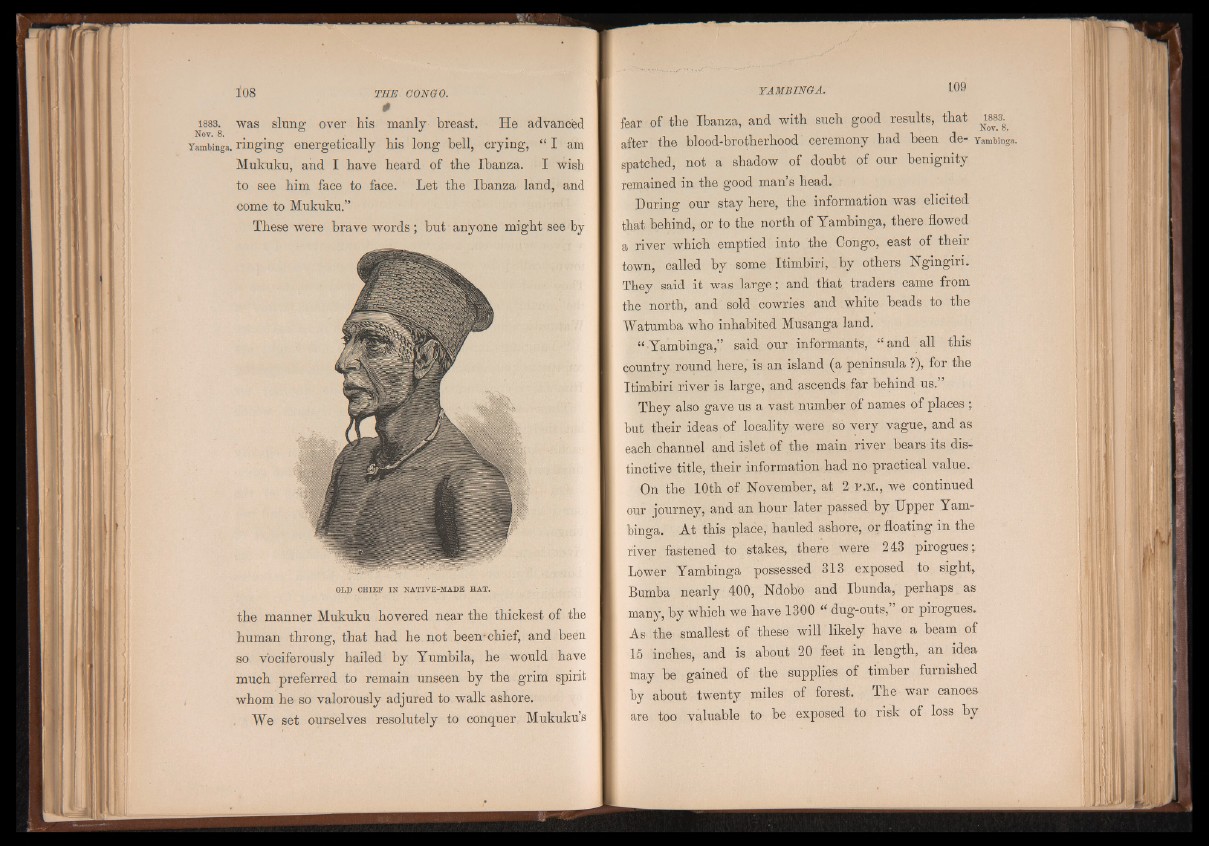
1883. was slung* over his manly breast. He advanced
N ot. 8. . . . *
Yambinga. ringing energetically his long bell, crying, “ I am
Mukuku, and I have heard of the Ibanza. I wish
to see him face to face. Let the Ibanza land, and
come to Mukuku.”
These were brave words ; but anyone might see by
OLP CHIEF IN NATIVE-MADE HAT.
the manner Mukuku hovered near the thickest of the
human throng, that had he not been-chief, and been
so vociferously hailed by Yumbila, he would have
much preferred to remain unseen by the grim spirit
whom he so valorously adjured to walk ashore.
We set ourselves resolutely to conquer Mukuku’s
fear of the Ibanza, and with such good results, that ^-883.
after the blood-brotherhood ceremony had been de- Yambinga.
spatched, not a shadow of doubt of our benignity
remained in the good man’s head.
During our stay here, the information was elicited
that behind, or to the north of Yambinga, there flowed
a river which emptied into the Congo, east of their
town, called by some Itimbiri, by others Ngingiri.
They said it was large; and that traders came from
the north, and sold cowries and white beads to the
Watumba who inhabited Musanga land.
“ •Yambinga,” said our informants, “ and all this
country round here, is an island (a peninsula ?), for the
Itimbiri river is large, and ascends far behind us.
They also gave us a vast number of names of places ;
but their ideas of locality were so very vague, and as
each channel and islet of the main river bears its distinctive
title, their information had no practical value.
On the 10th of November, at 2 p .m ., we continued
our journey, and an hour later passed by Upper Yambinga.
At this place, hauled ashore, or floating in the
fiver fastened to stakes, there were 243 pirogues,
Lower Yambinga possessed 313 exposed to sight,
Bumba nearly 400, Ndobo and Ibunda, perhaps as
many, by which we have 1300 “ dug-outs,” or pirogues.
As the smallest of these will likely have a beam of
1.5 inches, and is about 20 feet in length, an idea
may be gained of the supplies of timber furnished
by about twenty miles of forest. The war canoes
are too valuable to be exposed to risk of loss by